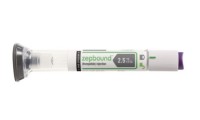-
NeoImmuneTech bags orphan drug tag for IL-7 acute radiation syndrome treatment
- Source: drugdu
- 93
- November 22, 2023
-
Senate Democrats press Sanofi and AZ for answers as ‘unprecedented’ demand spurs shortage of RSV antibody Beyfortus
- Source: drugdu
- 186
- November 22, 2023
-
Merck Expands Keytruda’s Label as a First-Line Option for Gastric Cancer
- Source: drugdu
- 97
- November 21, 2023
-
Eli Lilly Plans New $2.5B Manufacturing Site in Germany for Injectable Meds
- Source: drugdu
- 101
- November 21, 2023
-
China’s NMPA grants conditional approval for Apollomics’ NSCLC drug
- Source: drugdu
- 103
- November 21, 2023
-
CDC rushes extra doses of Sanofi, AZ’s Beyfortus to ease supply shortfall
- Source: drugdu
- 134
- November 21, 2023
-
Inari Medical closes LimFlow acquisition
- Source: drugdu
- 99
- November 20, 2023
-
Q&A With Dr. Mike McCullar, CEO of RegCell
- Source: drugdu
- 109
- November 20, 2023
-
World’s first CRISPR-based gene therapy approved for sickle cell anaemia
- Source: drugdu
- 102
- November 20, 2023
-
BMS strengthens NSCLC market share with ROS1 drug Augtyro
- Source: drugdu
- 97
- November 20, 2023
your submission has already been received.
OK
Subscribe
Please enter a valid Email address!
Submit
The most relevant industry news & insight will be sent to you every two weeks.













